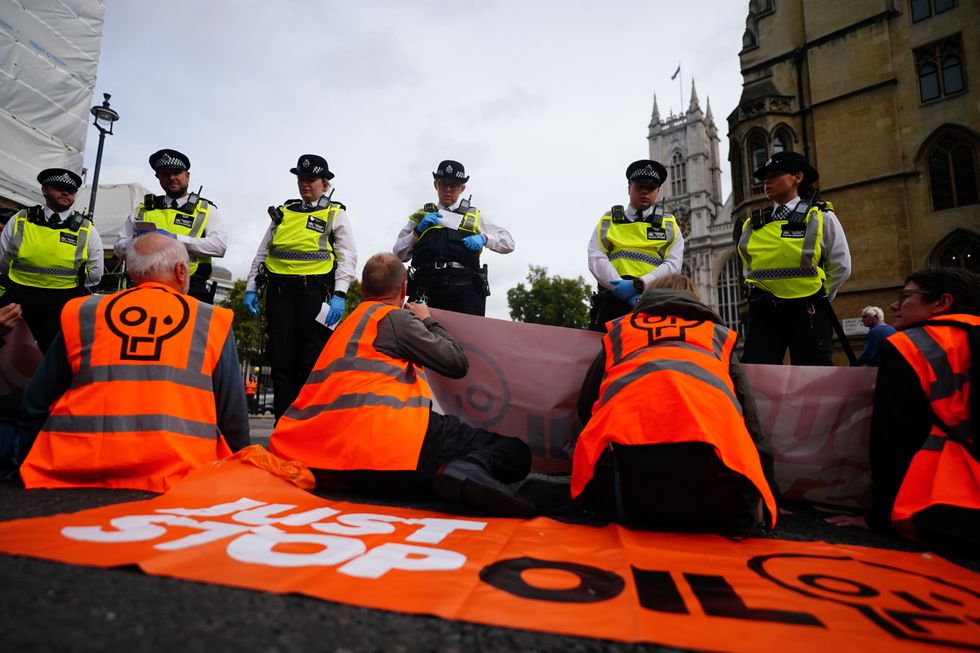Rishi Sunak pledges END to nuisance protests causing chaos for 'hard-working' Britons - 'It's NOT acceptable!'

The new public order bill is set to give police more power to clamp down on widespread disruption
Victoria Jones

Under new plans set to be announced today, police will be given powers to halt protests before they cause widespread disruption.
In a new clampdown on “guerrilla tactics” used by groups such as Just Stop Oil and Insulate Britain, officers will be allowed to shut down protests under the Public Order Bill going through parliament.
Police will also be able to treat a series of protests by the same group as one incident when defining what can be classed as “serious disruption”.
The new bill is designed to give officers more clarity about when they can intervene to stop protests such as blocking roads or slow marching to cause disruption.
Officers will be able to stop 'serious disruption' before protests escalate
Stefan Rousseau
Announcing the changes, Rishi Sunak explained that although the right to protest was a “fundamental principle of democracy” it was “not absolute”.
He said: “A balance must be struck between the rights of individuals and the rights of the hard-working majority to go about their day-to-day business.
“We cannot have protests conducted by a small minority disrupting the lives of the ordinary public. It’s not acceptable and we’re going to bring it to an end.
“The police asked us for more clarity to crack down on these guerrilla tactics and we have listened.”
Under the Public Order Bill, new criminal offences will be created for those causing disruption including making it illegal for people to glue or chain themselves to objects, obstruct big transport works or interfere with key national infrastructure.
Senior police chiefs have expressed their concerns with the legislation, saying it does not include a clear definition of “serious disruption”.
As a result, the bill would need to be amended to make it clear that police won’t need to wait for disruption to take place and could shut demonstrations down before they escalated.
Rishi Sunak says the bill will clamp down on nuisance protesters
House of Commons
Sir Mark Rowley, the Metropolitan Police commissioner: “Increasingly police are getting drawn into complex legal arguments about the balance between that right to protest and the rights of others to go about their daily lives free from serious disruption.
“The lack of clarity in the legislation and the increasing complexity of the case law is making this more difficult and more contested.
“In practical terms parliament providing such clarity will create a clearer line for the police to enforce when protests impact upon others who simply wish to go about their lawful business.”